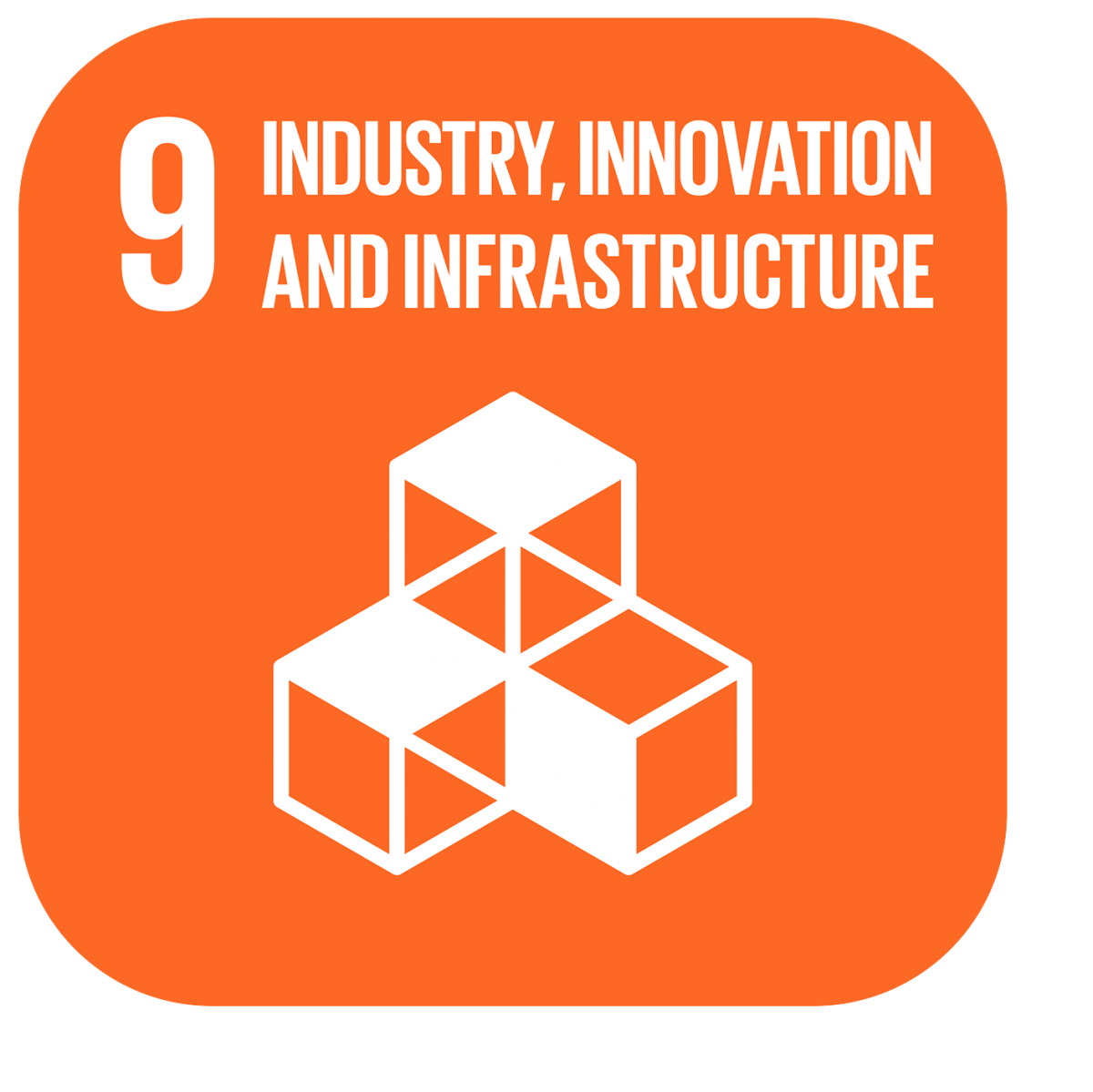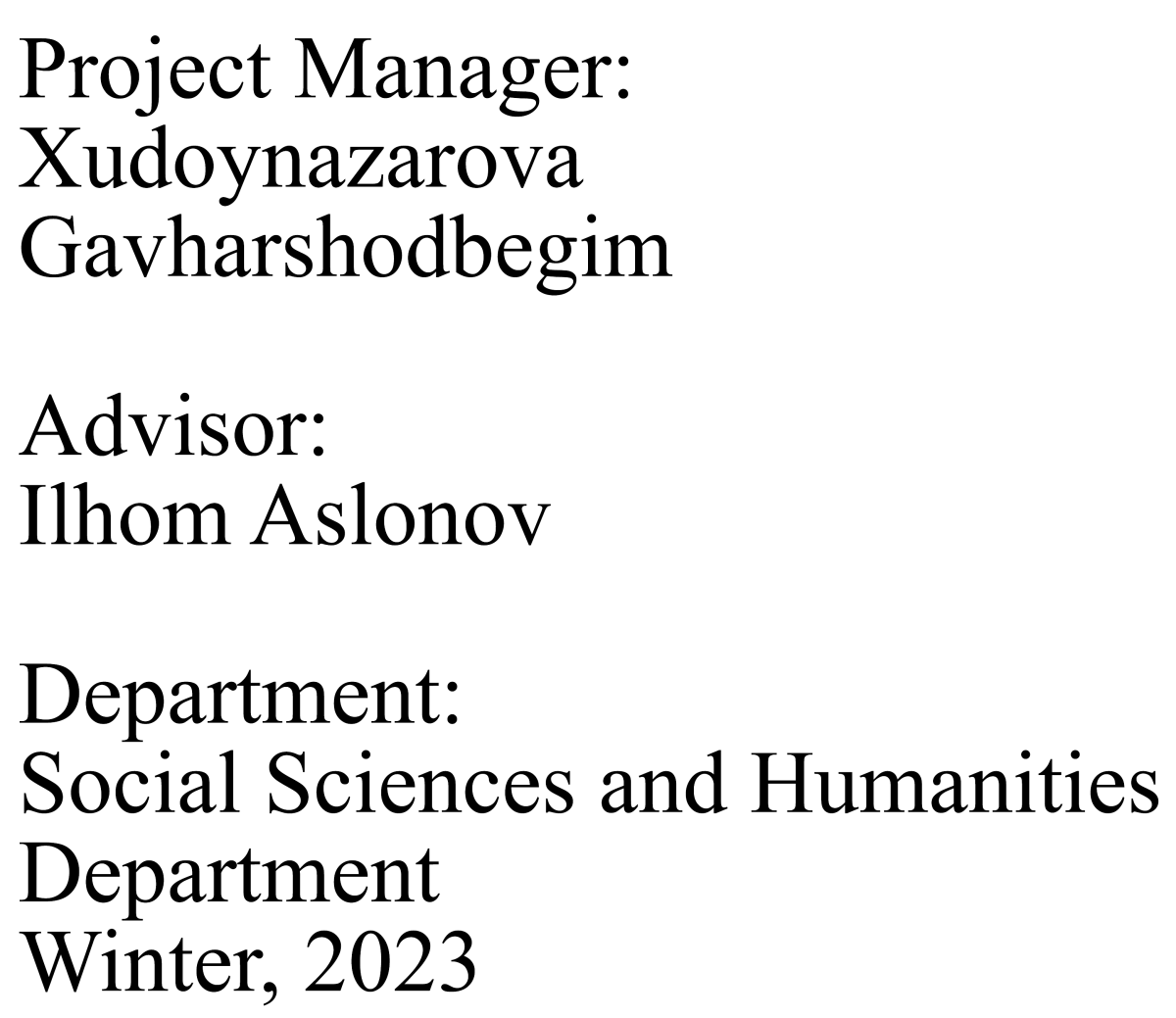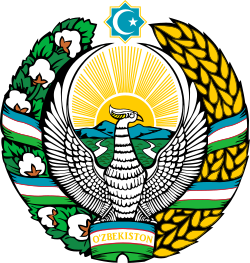|


|
Objective: The "Creation of a Linguistic Database of Uzbek Slang" project seeks to identify and compile a comprehensive collection of Uzbek slang, drawn from social media, spoken language, and other informal communication channels. Slang, which is often playful and creative, evolves rapidly and is typically used in casual conversations rather than formal speech or writing. This database will serve as an essential resource for linguists, researchers, and technology developers aiming to understand the dynamics of slang in the Uzbek language.
Project Tasks:
1. Data Collection: Gather Uzbek slang terms from various sources, including social media platforms, spoken language, and informal written texts, ensuring a broad representation of slang from different social groups and regions.
2. Database Development: Organize the collected slang into a structured linguistic database, categorizing terms by usage, social group, region, and context.
3. Analyze Linguistic Patterns: Examine the patterns, themes, and trends in Uzbek slang, identifying common features such as word formation, semantic shifts, and contextual usage.
4. Integration with Uzbek Morphological Analyzer: Enhance the Uzbek morphological analyzer by incorporating slang terms, improving its ability to process informal language.
5. Machine Translation and NLP Integration: Utilize the slang database to enhance the performance of machine translation systems and natural language processing (NLP) tools, allowing for better translation and interpretation of informal Uzbek language.
6. Application in Spell-Checkers and Search Engines: Improve the accuracy of spell-checkers and search engines by including slang terms in their databases, making them more relevant for modern, casual communication.
7. Support Scientific Research and Education: Make the database available for academic research and educational purposes, helping students and scholars understand the evolving nature of language.
8. Forensic Linguistic Applications: Provide valuable resources for forensic linguistic experts in analyzing informal language use in criminal cases and legal investigations.
Project Outcome: The successful creation of the Uzbek slang database will offer numerous benefits for both linguistic research and practical applications. The database will:
• Serve as a valuable resource for understanding the informal, dynamic aspects of the Uzbek language.
• Enhance the efficiency of the Uzbek morphological analyzer, allowing it to process slang and informal language more accurately.
• Improve machine translation and natural language processing (NLP) tools by incorporating colloquial expressions, making these technologies more effective for informal communication.
• Support educational efforts by offering researchers and students a detailed look at slang usage, patterns, and its cultural significance.
• Contribute to forensic linguistic analysis by providing a resource for examining slang used in spoken and written language during legal investigations.
• Benefit technology developers by improving the accuracy of search engines and spell-checkers, making them more attuned to informal language used on social media and other casual platforms.
This project represents a groundbreaking effort to document and formalize a linguistic aspect that often goes unrecognized - slang. By compiling and analyzing Uzbek slang, the database will become an essential tool for researchers, educators, and technology developers alike.
SDG 9 Alignment: The "Creation of a Linguistic Database of Uzbek Slang" aligns with Sustainable Development Goal 9 (Industry, Innovation, and Infrastructure) by promoting technological advancements in language processing, natural language understanding, and machine translation. This project helps bridge the gap between formal and informal language use, providing a resource that can be applied across industries such as technology, education, and forensic linguistics. Additionally, the database will support cultural preservation by documenting slang, an often-overlooked aspect of linguistic heritage, ensuring it is available for future generations to study and analyze.
Project Manager:
Xudoynazarova Gavharshodbegim
Advisor:
Ilhom Aslonov
Department:
Social Sciences and Humanities Department
|
|

|








